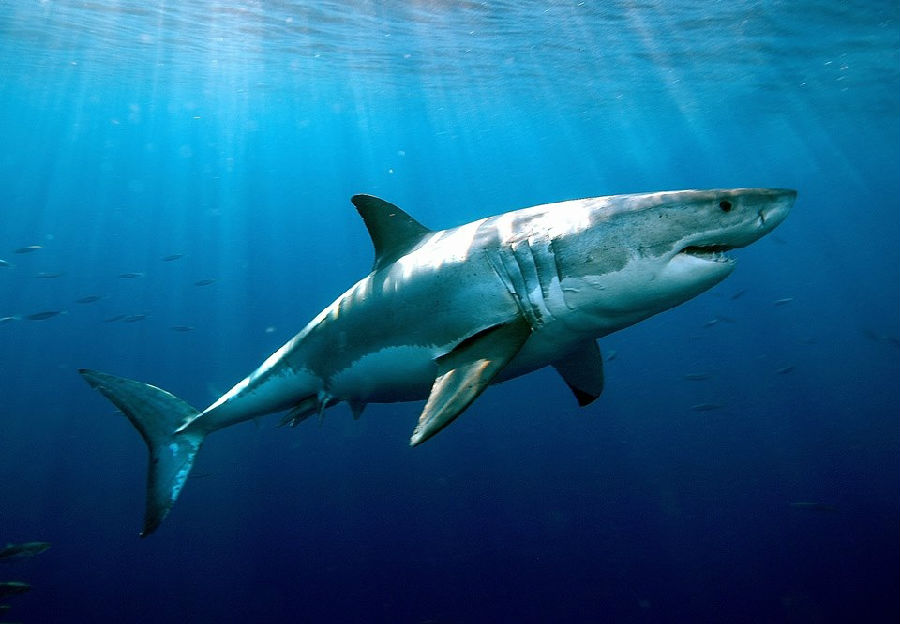Saving sharks is not so straightforward.
拯救鲨鱼的道路没有如此平坦
They're not just caught accidentally—
它们被捕捉并非偶然...
their fins are worth a fortune, thanks to an Oriental taste for shark-fin soup.
它们的鳍很值钱 全因东方人喜欢喝鱼翅汤
Over 70 million sharks are killed every year,
每年有超过七千万只鲨鱼被捕杀
many in the South Pacific, where shark-finning is neither outlawed nor properly regulated.
在南太平洋的很多地方 割取鲨鱼鳍要么并不违反法律 要么得不到有效管理
This is a big-eye thresher, a shark that's almost never been seen in the wild.
这是一条大眼长尾鲨 一种几乎从未在野生环境被见到过的鲨鱼
Shark-finning is a wasteful and often cruel practice,
切割鲨鱼鳍是一种浪费 而且通常以残忍的方式
and one that may ultimately disrupt the balance of life in the ocean,
可能最终打乱整个海洋生态的平衡
proving catastrophic for other marine life too.
并被证实对其他海洋生物同样是 毁灭性的灾难

So how can sharks be saved?
那如何拯救鲨鱼?
In Bega Lagoon, in Fiji, the local people are proving that sharks can be more valuable alive than dead.
在斐济的贝加湖 当地居民证明 一条活着的鲨鱼比死掉的更有价值
Tourists will pay good money for an encounter with real, live sharks.
游客愿意为了与真实的活着的鲨鱼 进行一次相会而花大钱
This is a community-owned reef and some of the money goes to the local villagers—
这是一片集体拥有的珊瑚礁 收入的一部分归当地的村民
a big incentive not to kill the main attraction.
对禁止捕杀鲨鱼有很大激励
Fijians have long had an affinity with sharks.
斐济人长久以来和鲨鱼关系密切
Their ancestors worshipped a shark god, who they believed kept them safe from harm.
他们的祖先崇拜一位鲨鱼神 他们相信他能保护他们免受伤害
They would feed sharks, not hunt them, and these divers continue the tradition.
他们会喂养鲨鱼 而不捕杀它们 这些潜水者延续这一传统












